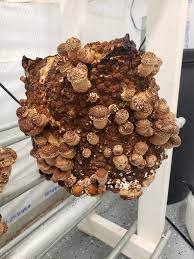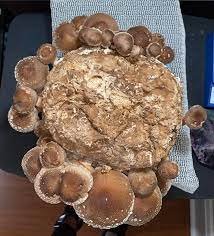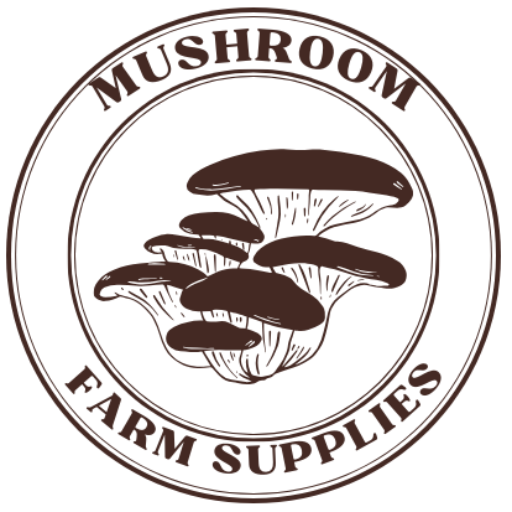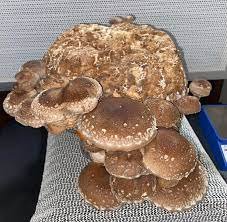Shiitake 5000 Lentinula Edodes
Shiitake 5000 mushroom (Lentinula edodes) is one of Asia’s most beloved and delicious edible mushrooms due to its high protein and polysaccharides content as well as its distinct aroma. It has become widely cultivated across countries such as China, Japan and Korea due to its health benefits and delicious taste.
Shiitake mushrooms are renowned for their health benefits, such as lowering cholesterol levels, improving immune function and combatting inflammation. Furthermore, this mushroom possesses anti-cancer properties.
Nutritional Benefits
Shiitake mushrooms are packed with beneficial compounds that boost immunity, prevent disease and strengthen your heart. They contain eritadenine, an inhibiting compound for cholesterol absorption, beta-glucans which reduce inflammation, white blood cells to boost white blood cell counts and protect from infection. Shiitake mushrooms offer many health benefits.
Mushrooms are an excellent source of vitamin D, a critical nutrient for many Americans. Furthermore, they contain B vitamins and have antioxidant properties.
Shiitake mushrooms are packed with beta-glucans, a type of fiber that aids in digestion and absorption of essential nutrients. Furthermore, these mushrooms may reduce your risk for developing certain cancers.
Fiber can also help regulate your blood sugar levels, potentially decreasing the risk of diabetes and heart disease. Furthermore, it prevents your body from absorbing too much fat.
Studies have demonstrated that shiitake mushrooms may help reduce your risk of gout by decreasing the amount of purines in your diet. A diet rich in purines will raise uric acid levels, increasing the likelihood for development of gout.
Another possible explanation why shiitake mushrooms could help prevent gout is their high concentration of AHCC (active hexose correlated compound), an antioxidant. This chemical is found in many fruits and vegetables, including shiitake mushrooms.
AHCC may enhance immunity by stimulating natural killer T cell (NK-T) proliferation and activation. Additionally, it has been known to induce the secretion of cytokines such as interleukin 2 (IL-2), tumor necrosis factor alpha (TNF-), IL-12, and IL-22.
A 2006 study published in the Journal of Alternative and Complementary Medicine demonstrated that an extract of Shiitake mushrooms with anti-HCC can inhibit tumor growth and induce apoptosis in breast cancer, colon cancer and myeloma cells. Another similar study has demonstrated that long-term consumption of such mushroom extract may increase survival rates among those suffering from Hepatocellular carcinoma – the most common type of liver cancer.
Studies have also demonstrated that shiitake mushrooms may help prevent diseases like influenza and HIV by killing viruses in the laboratory, decreasing inflammation and strengthening the immune system.
Antimicrobial Properties
Shiitake 5000 Lentinula edodes have been reported to possess potent antimicrobial properties against some common clinical pathogenic bacteria, including Salmonella enterica and Escherichia coli. This may be due to AHCC (active hexose correlated compound), a soluble polysaccharide that has demonstrated strong antibacterial activity against these strains of bacteria.
AHCC has also been reported to inhibit the growth of human immunodeficiency virus-1 reverse transcriptase and leukemia cell proliferation. Furthermore, AHCC may possess anti-cancer properties against certain cancers like human colon carcinoma and prostate tumors.
Shiitake has antimicrobial properties due to natural compounds like AHCC and lentinan, both of which have been demonstrated with strong antibacterial activity. Furthermore, shiitake has anti-inflammatory and antioxidant properties which may reduce inflammation within the body and help prevent disease.
These results were corroborated in a study testing the effects of reconstituted freeze-dried extracts of shiitake on salmonella, E. coli and rheumatoid arthritis-causing bacteria. The methanolic extracts of Lentinula edodes and Pleurotus sajor-caju showed stronger effects than their respective controls when tested against each species individually.
Microbial counts on fresh shiitake caps and slices were monitored for 14 days, during which they were stored under various conditions. At the start, there was an initial total AMM load of 5 log cfu/g, consisting primarily of Pseudomonas (4.7 log cfu/g), moulds/yeasts (4.1 log cfu/g) and Enterobacteriaceae family members (3.5 log cfu/g).
Between day 7 and 28, the microbial load of slices significantly decreased. The cap cuticle showed no deterioration, suggesting it serves as an effective barrier against microorganisms. Unfortunately, isolated bacterial strains showed increased biodeterioration capacity throughout this conservation period – with cap slices suffering more damage than their caps.
One group of bacteria was identified, including Burkholderia sp., Ewingella americana, Serratia sp., Microbacterium sp. and Rahnella sp. These strains had the greatest damaging ability on shiitake caps and slices but had a positive effect on mycelium of this mushroom. These antimicrobial effects suggest that shiitake may have an enhanced mycopathogenic profile due to their low nutritional density and short shelf life.
Anti-Cancer Properties
Shiitake 5000 Lentinula edodes is an edible mushroom popular in gastronomy and research has been done on its potential health benefits. It contains many beneficial compounds which may reduce cancer growth and progression while providing anti-inflammatory properties. Furthermore, Shiitake could potentially improve quality of life for cancer patients undergoing chemotherapy treatments.
 Additionally, lentinan, an isolated polysaccharide from the fungus, was demonstrated to possess anti-cancer activity. In vitro it was found to inhibit human colon carcinoma growth as well as increase cellular immunity and cytotoxicity against xenografted tumors. Furthermore, it enhanced immune response, promoted apoptosis in various cancer cell lines, and suppressed phosphorylation of Akt/mTOR and PI3K expression levels.
Additionally, lentinan, an isolated polysaccharide from the fungus, was demonstrated to possess anti-cancer activity. In vitro it was found to inhibit human colon carcinoma growth as well as increase cellular immunity and cytotoxicity against xenografted tumors. Furthermore, it enhanced immune response, promoted apoptosis in various cancer cell lines, and suppressed phosphorylation of Akt/mTOR and PI3K expression levels.
Lentinan may possess anti-cancer properties due to its capacity for increasing the production of immune cells such as T lymphocytes. Furthermore, it could potentially influence DNA repair within tumor cells.
A dietary supplement containing lentinan and a specific peptide from the mushroom, called Active Hexose Correlated Compound (AHCC), was shown to reduce oxidative stress in breast cancer patients. This dietary intervention even improved their immunity after chemotherapy treatment! Now this supplement is being investigated in combination with other medicinal mushrooms such as shiitake and wasabia japonica to assess its effects on multiple cancer types.
Latcripins, an important molecule from Shiitake mushrooms, have been demonstrated to inhibit cell proliferation and migration in various human cancer cell lines. Notably, AKTA-1/1Latcripin-1 treatment significantly decreased HepG2 and HeLa cell proliferation while suppressing Akt/mTOR and PI3K activity in these same cancer cells – important regulators of growth. Moreover, Latcripins had a notable inhibitory effect on SGC-95 adenocarcinoma cell line and made these cells less sensitive to phorbol 12-myristate 13-acetate – another widely used anticancer agent.
These results demonstrate that lentinan can be an effective integrative therapy for cancer patients and may provide a novel approach to treating oncological diseases. However, further research is necessary to fully comprehend its optimal effectiveness.
Liver Protection
Shiitake 5000 Lentinula edodes mushroom is an all-natural food supplement with numerous health benefits. These include strengthening the immune system, lowering cholesterol levels, treating prostate cancer and acting as an anti-aging agent. Furthermore, this mushroom may reduce inflammation.
Shiitake mushrooms have been grown for centuries in East Asia and are revered as the “elixir of life.” Not only do they make an excellent ingredient in many dishes, but they are also widely used in traditional medicine to treat various illnesses.
Studies have demonstrated the liver-protecting effects of extracts of shiitake mushrooms. This is thought to be due to their capacity for inhibiting cell growth and anti-inflammatory properties which could shield your organs against damage caused by diseases like hepatitis or alcoholism.
Mushroom Lentinan compounds have been demonstrated to fight off infections and keep tumors from growing, possibly due to its anti-inflammatory and anti-tumor effects. These effects have been attributed to the mushroom’s lentinan compound.
A medicinal mushroom’s potential hepatoprotective effects have been studied, with research suggesting they inhibit fibrosis – a process which can develop after chronic liver injury and lead to liver failure or cirrhosis. A study on mice demonstrated an extract of the mushroom reduced liver fibrosis while in rats it prevented fibrils from forming.
These results demonstrate that lentinan from shiitake mushrooms can protect against liver fibrosis. Furthermore, the extract has been demonstrated to possess an antioxidant effect, aiding in combatting free radicals which cause oxidative stress and other damaging effects in the body.
Recently, a study found that lentinan from shiitake mushroom can help lower blood pressure in those with hypertension. Furthermore, it appears to reduce levels of triglycerides in the blood.
Another study has demonstrated the antibacterial power of shiitake mushroom extract. In a laboratory test, researchers observed the reduction in bacteria DNA strands and an increase in beneficial bacteria responsible for healthy digestive tract function when taken orally.
A clinical study on young racehorses demonstrated that Shiitake 5000 Lentinula mushrooms, when consumed daily at 30 grams for four months at a dose of 30g, led to significant improvements in their hematological parameters. Specifically, those who consumed the mushrooms had significantly higher levels of monocytes and alkaline phosphatase than their non-consuming counterparts.

